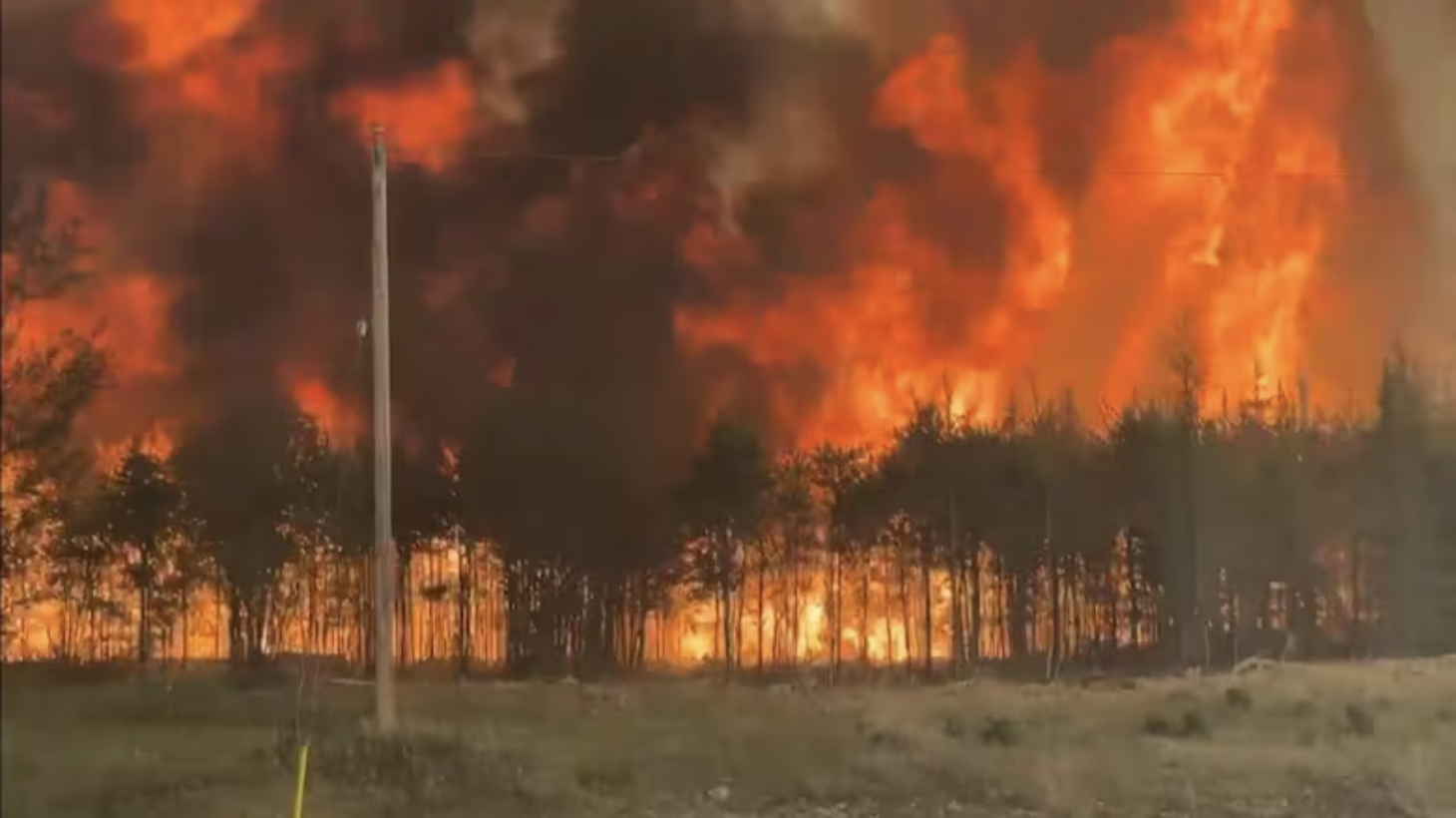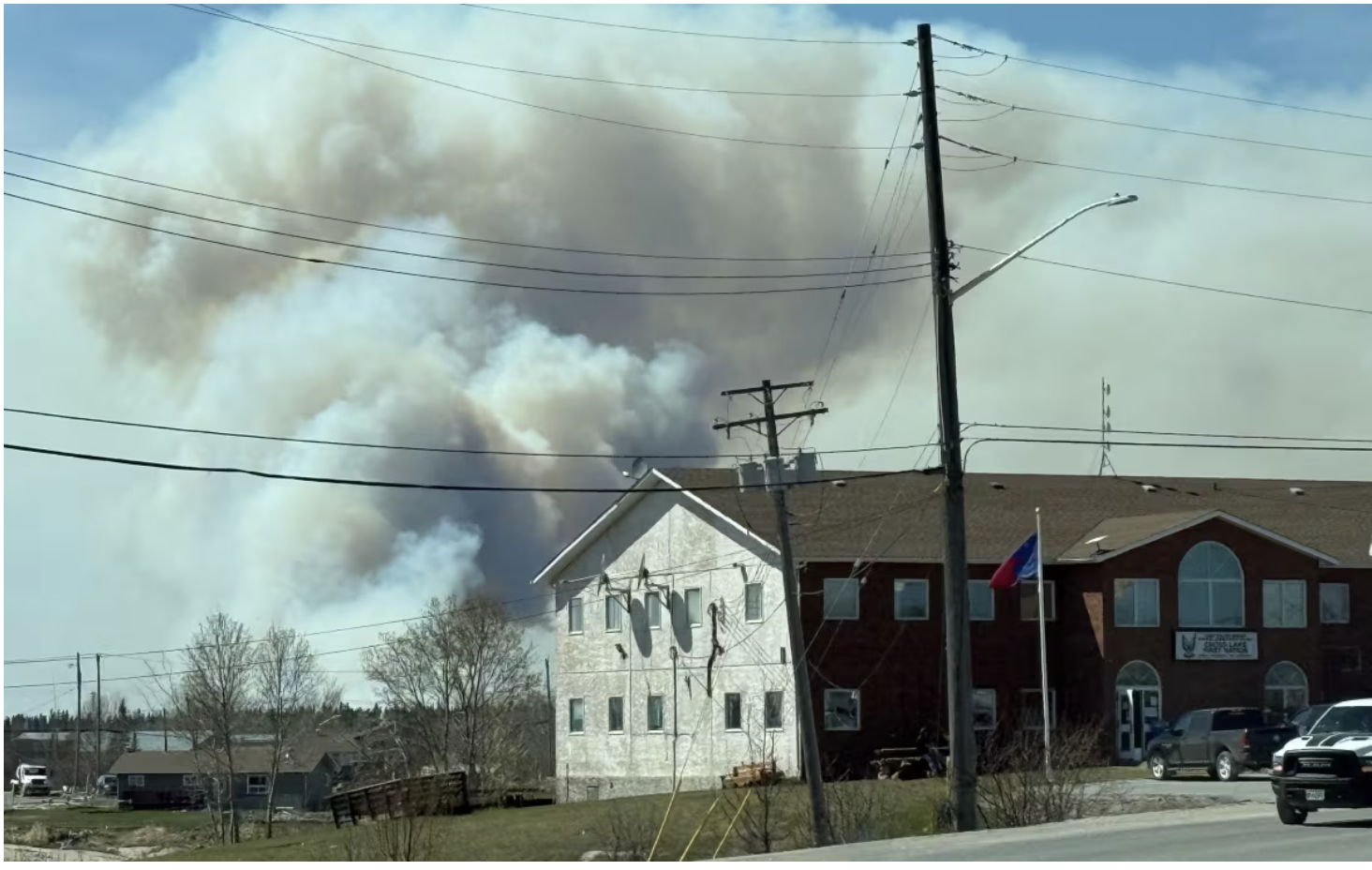FIRST NATIONS FLEEING WILDFIRES
As of Tuesday, June 3rd, British Columbia has 74 wild fires burning, 16 in Alberta. Last week the provinces of Saskatchewan and Alberta declared a state of emergencies due to fires and suffocating smoke, with thousands (more than 25,000) of residents already evacuated. Ontario is now joining with more wildfires emerging. The smoke from the fires is drifting south and across the U.S. border, significantly impacting air quality. Unfortunately, Canada is only at the beginning of its annual wildfire season. The ferocity of the fires and how quickly they are moving and changing, is unlike many have ever seen. The enormity and gravity of these wild fires are devasting many communities.
A wildfire burning between Flin Flon and The Pas in western Manitoba is shown in a Thursday photo. (Government of Manitoba)
Pimicikamak Cree First Nation have many people leaving reserves for the first time ever, with no one knowing when they can come back. Thousands of people remain out of their homes, many being ordered to evacuate in the middle of the night. Places and spaces for evacuees are filling up, forcing many to have to sleep in their cars, in community centres and arenas. Many areas having to evacuate are experiencing long line ups waiting for transportation. While basic needs such as food and shelter are being addressed, there is an immediate need to support the emotional, mental, and social well-being of community members who have fled. Many people face losing their homes, many have had to leave much loved pets behind. As the Opaskwayak health authority stated, “Smoke has gotten so bad, you could barely see, people coughing, and experiencing respiratory discomfort. Elderly and “at risk” people have been sent to other locations.” Wild fire smoke presents serious health hazards, especially to people who have been exposed to it time after time in areas affected by wildfires annually. People are encouraged to check daily air quality reports, and the use of N-95 masks during times of decreased and poor air quality reports.
First Nation leaders are calling upon the government to use the Emergency Measures Act to free up hotel space. With more hot, dry weather in the forecast, fears are growing that further fire situations will erupt in the coming days, especially if the wind shifts.
The Canadian Red Cross is working with local governments and First Nations leadership to help people displaced by the fires. Evacuees are encouraged to register on-line or call 1-800-863-6582. Donations can be made directly to Red Cross to help on their website. The Assembly of Manitoba Chiefs (AMC) is collecting donations of items to give to displaced families. The MMF (Manitoba Metis Federation) are looking for drivers to transport supplies and evacuees, cook food, and to possibly host folks who have been displaced. The Humane Society and Animal services are asking for donations of food and supplies for pets left behind in evacuated areas. Supplies are donated to rescue teams and organizations in the greatest need.
Our hearts and prayers go out to all of our people, their loved ones, and communities affected by the wild fire crisis.


